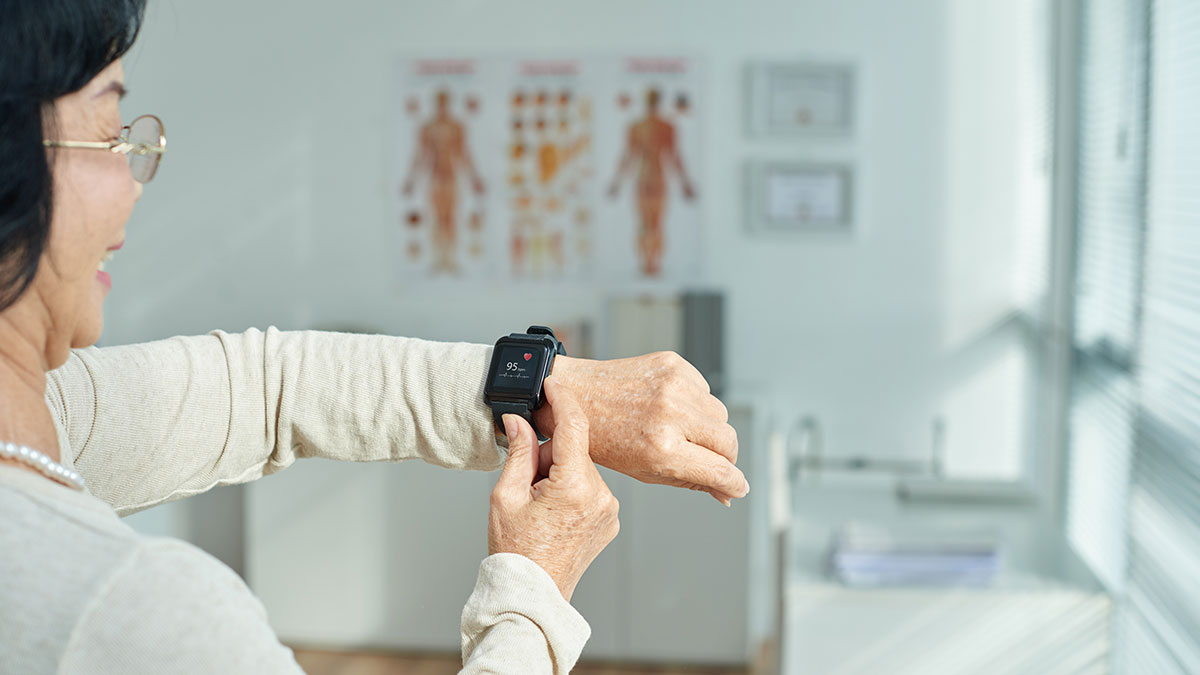Changing hearts

Danish biotech Acesion Pharma is hoping to change the standard of care in atrial fibrillation. Richard Staines spoke with CEO Frans Wuite to find out more, and hear about the potential of a drug that could be used in conjunction with wearable devices.
Frans Wuite, CEO of Danish biotech Acesion Pharma has a downbeat assessment of the current treatment options for patients with atrial fibrillation (AF). And with a dearth of new drugs in development, Acesion is hoping to provide a new option with AP30663.
This drug works by inhibiting SK channels, ion channels present in the atria, which play a role in regulating cardiac rhythm. Acesion Pharma hopes that blocking these ion channels will reset the heart rhythm without side effects, producing a better safety profile than existing drugs.
AP30663 is presently being developed for intravenous cardioversion, and if efficacy and safety in the upcoming proof of principle study is satisfactory, the aim is to develop AP30663 as a rapid oral cardioversion therapy, allowing treatment in the patient´s home.
“Pharmacological treatment for cardioversion of AF is poor at best and has not penetrated far,” Wuite told pharmaphorum in an interview.
All drug manufacturers want improved efficacy and few side effects, and this is particularly important in AF as all drugs currently approved for cardioversion need to be administered in hospital.
There are some inherent problems with the therapies on offer at the moment, among them a risk of altering the operation of the ventricles. “If you want to get [the heart] in sync you do not want to dysregulate the ventricle. This is the main cardiac safety issue these drugs have been battling with.”
Electric shocks are commonly used in hospitals to return the heart’s rhythm to normal, but general anaesthesia is required for the procedure and recurrences of AF are common. Wuite argues that it is high time for new drugs to treat this condition.
There have been attempts to develop new alternatives, most notably Laguna Pharmaceuticals’ attempt to get its vanoxerine through clinical trials. The San Diego biotech company shut down in late 2015 after abandoning a late stage trial of vanoxerine because of unforeseen safety signals from the ventricles.
This has left something of a void in terms of research into atrial fibrillation, which Wuite hopes to fill with AP30663, which has a new and novel mechanism of action.
”Our drug will engage a target expressed in the atrium - we have a means to fix the atrial problem rather than dysregulate the ventricles.”
After a successful phase 1 trial that ended late last year, the company is now ready to move into phase 2 trials, to test the potential of AP30663 in cardioversion.
As clinical development progresses, there are also plans to develop another drug based on the same mechanism of action, but with a longer action, as an oral therapy for maintenance of the normal rhythm and prevention of recurrences of AF.
Practice changing?
Current guidelines include recommendations for intravenous cardioversion and oral maintenance therapy for symptomatic AF.
It is early days for AP30663 but Wuite is optimistic about its potential if trials are successful. This is a huge caveat given the highly risky pharma R&D process, but Wuite’s analysis suggests that AP30663 for intravenous cardioversion, in combination with a pill for rapid oral cardioversion that can be taken at home, has potential to change the dynamics of the market.
Frans Wuite
“It may increase the number of patients who come to seek help. If they know there is a drug that can normalise their heart rhythm and then allow them to be sent home with a pill to take if AF would recur, that is worthwhile for them to consider.”
A cardioversion pill taken at home could also be used in conjunction with digital technology, as smart watch and other device manufacturers incorporate electrocardiogram technology including AF detection algorithms into their products.
This could allow for early diagnosis of AF, increasing the chances of the disease being rectified before serious damage is done to the heart, and giving the medication the best chance of succeeding.
Smart watches also detect asymptomatic atrial fibrillation, potentially broadening the patient population and reducing risk of cardiac damage in patients who do not know they have a problem. However, as yet, studies are needed to support the benefit of treating asymptomatic AF to become a recommended treatment indication.
Wuite said: “If companies like Apple and Google are seriously interested in better diagnostics and therapy for common diseases like AF, this would be a marriage in heaven. It goes hand in glove with improved diagnostic technology.”
Proof of concept and beyond
Before these ambitious plans can be realised, however, Acesion Pharma must conduct the mid-stage trials necessary to ensure that the effects seen in preclinical and early-stage trials can be replicated in patients. The plan is for a proof of concept placebo-controlled phase 2 trial starting this year and concluding in the second half of 2020.
This trial will also give an indication whether this class of drugs is suitable for use as maintenance therapy, if it shows strong enough cardioversion results and an acceptable safety profile.
As with all biotech companies with a drug in this stage of development, Acesion Pharma is looking for funding if clinical development of the drug continues into a phase 3 program.
Wuite is open to consider all funding options. This could be through either a partnership deal with a big pharma company, or even a stock market listing to provide the necessary capital to take development forward to a pivotal trial.
An attractive possibility is a “rational marriage” with a pharma company that already markets products for treatments of patients with AF, such as anticoagulants, and has the sales expertise and relationships with doctors treating patients with AF.
“That’s clearly something we would like to have discussions about,” said Wuite.












